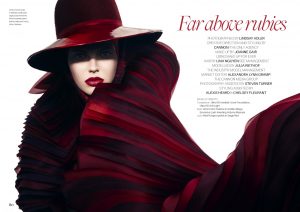Despite Stephen Fry and fellow Tweeter, brumplum, settling their differences four hours ago, many media outlets are content to spread the bad news that the actor–writer is poised to quit Twitter this morning.
Yesterday, brumplum called Fry ‘boring’, which the actor took to heart while he felt down. Brumplum later apologized for the remark.
In addition, brumplum never directed a Twitter tag, #envioushomo, to Fry, which had been another source of contention on Twitter. It had originated from a gay friend of brumplum who had used it to describe himself.
After a good night’s rest and a change of scene to Los Angeles, Fry acknowledged that brumplum was entitled to say what he did, and accepted his apology.
Since then, the two gentlemen have conversed amicably and Fry is not quitting Twitter any time soon.
This is good news story with a happy ending—though in the last few hours the news was still mostly negative, with the exception of the Telegraph, which had the updated version of events.
To some degree, this incident highlights the mainstream media’s delight with bad news, as well as its scepticism toward Web 2·0 in general. Any bad news with a relatively new website seems to be greeted with enthusiasm.
The reality is that Twitter served as a medium not just for brumplum’s free speech, but as one that helped two people settle matters in a mature, adult fashion.
It also shows that the Telegraph, which started its pioneering online edition 15 years ago this month, has never been afraid to show the positive side of technology.
As we celebrated our 12th anniversary nearly two weeks ago, it reminded me of how “old media” were afraid of the internet in the mid-1990s.
We have to remember, just as netizens individually already realize, that the internet is not a threat but an opportunity. If we understood our readers, we would position ourselves to use the media that they want us to use.
In publishing, it means we have to look at both online and offline media, especially in fashion where people expect to have more of a “tactile” relationship with a publication.
There’s little point, in our mind, to rubbish Twitter, when millions have flocked to the service and are following the people they want—and that includes Stephen Fry, who in per capita terms has arguably brought more of his fellow countrymen to the service than any other.
So, for us, it’s about being present on the service and encouraging dialogue with our readers. Perhaps like the Telegraph, we want to record the Zeitgeist, albeit with an eye on our fashion, beauty, lifestyle and travel topics.
And we would say that for many, Twitter is certainly part of that lifestyle.
A tiny addendum should be made: yours truly returned, if only for four minutes, to live television in New Zealand with a brief interview on Facebook and the dangers of photographs on the social networking site.
The interview on TV3’s Sunrise appears at its site here, and I am glad to report that the network approached Facebook with more fun than many other media. Not surprising, since both anchors (Ali Ikram and Carly Flynn) have Twitter pages, as well as the show itself.
While it was a negative subject, I like to think we educated people on what to do in the modern era when employers are likely to do Google searches on potential employees. We also made it seem more accessible, I hope, by telling people that there is sometimes a way out when embarrassing photos surface.
The notes I typed up to guide me, though I never read from them on air, can be found at my personal blog.








